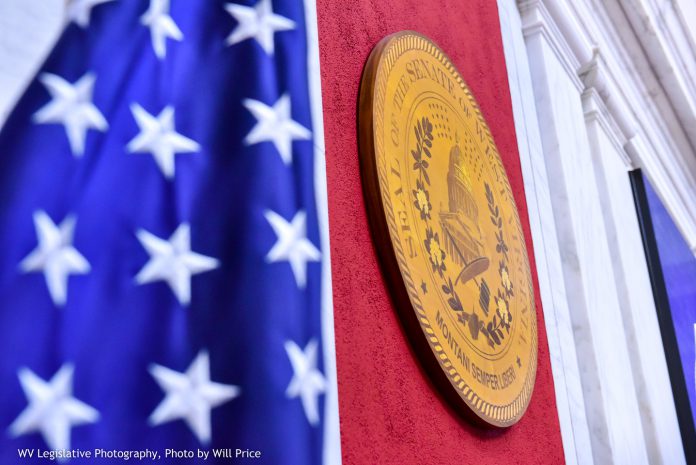As of 4 p.m., Thursday, January 16th, 2014, the 9th day of the 2nd session of the 81st Legislature, 373 bills have been introduced in the Senate. Amoung those introduced this week were:
Senate Bill 6 would allow for the sale of drug products by the Board of Pharmacy to either be sold over-the-counter or by prescription only, depending on the drug’s ability to be used in the manufacturing of methamphetamine. If a drug can be used in the making of methamphetamine it will only be sold by prescription only. If the drug cannot be used in the manufacturing it will continue to be sold over-the-counter.
Senate Bill 10 would allow mothers of a newborn to have dental coverage under Medicaid. The proposal would require the Department of Health and Human Resources and Medicaid to provide the dental coverage for two years after the birth of her child.
Senate Bill 15 would allow the State Bureau of Public Health, county or local public health agencies the ability to bill patients for HIV and sexually transmitted disease testing. The measure would remove the inability by state and local public health agencies to reasonably charge a patient or their health insurance provider for HIV or STD testing. This bill would also clarify procedures for testing persons accused of sexual offense for HIV or STD’s.
Senate Bill 18 would redefine and rename obscene matter to contain specific matter that is harmful to minors. The word obscene would be renamed to harmful. This bill would prevent the preparation, distribution or exhibition of obscene matter to minors. This bill would allow revision to reflect the new definition.
Senate Bill 27 would prohibit minors under the age of sixteen to obtain a tattoo without physical and written consent by a parent or legal guardian. This bill would require a parent or legal guardian to be present at the tattoo studio and provide photo I.D. and written consent for minors between sixteen to eighteen years of age. This bill also provides criminal penalties for not consenting.
Senate Bill 54 would improve state of emergency preparedness in a variety of ways. The legislation to be considered would require the Commissioner of Highways to put up signs on the interstate highways and other roadways to direct traffic to emergency shelters. It requires the Office of Emergency Services to work with local radio and television stations to broadcast public service announcements about where the emergency shelters are. The bill would provide tax credits for natural gas, propane, gasoline or diesel fuel to fuel emergency generators. This bill would also provide protection from civil or criminal liability to people who donate food during emergencies.
Senate Bill 67 would authorize the use of extra campaign contributions for repayments of previous loans or debts.
Senate Bill 68 would limit the liability of participant in certain water pollution abatement projects or make beneficial use of mine drainage, mine pool water and other water supplies for projects such as hydraulic fracturing of gas wells and other industrial purposes.
Senate Bill 73 would exempt veterinary medications from sales tax. The purpose of this measure is to exempt sales of veterinary medications from sales tax.
Senate Bill 76 would exempt firearms, a firearm accessory, or ammunition manufactured and retained in West Virginia, from Federal regulation under the Commerce Clause of the Constitution of the United States. This proposal also includes a provision that would require all firearms manufactured in West Virginia have “Made in West Virginia” stamped on a central metallic part.
Senate Bill 91 would require that all employees of the state and its agencies only be able to wear uniforms manufactured in the United States. The effective date of the bill would be July 1, 2014. This means that employee uniforms purchased by the State Board of Education and state institutions of higher education all must be made in the United States.
Senate Bill 213 would apply the residential solar energy tax credit up to $2,000 to each installation of a solar energy system and extends the tax credit until July 1, 2021.
Senate Bill 288 would clarify that an individual does not qualify for unemployment for weeks in which he or she did not work because of a strike.

